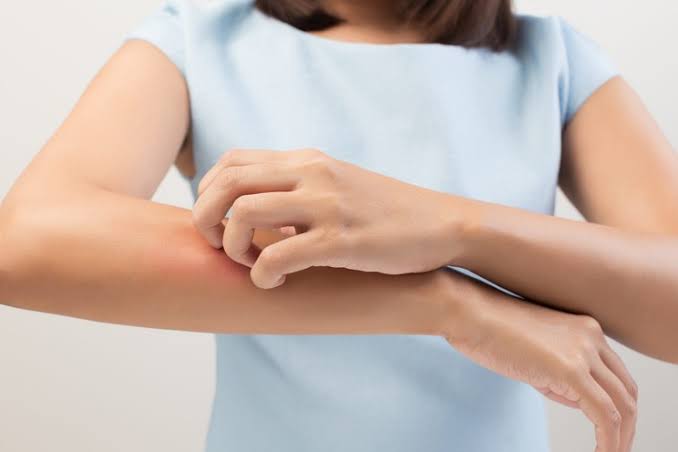Have you ever taken a bath, and once you stepped out of the bathroom, your body started itching?
Dry skin from bathing with hot water is a common cause of post-shower itching.
Itching after a shower typically subsides after a short while. Using moisturizing lotion after a shower can help to reduce itchy skin.
Are you worried about why your body itches? It may be a symptom of more serious conditions like;
1. Cholinergic urticaria
People with cholinergic urticaria typically have high blood pressure and asthma.
An increase in body temperature can result in cholinergic urticaria, a type of hives.
Your body temperature can be increased by taking hot baths, working out, eating spicy food, or sleeping with too many blankets at night. People with cholinergic urticaria may also have hives while under intense emotional stress.
The cholinergic urticaria hives are similar in size to a mosquito bite.
2. Aquagenic Urticaria
Another rare kind of hive is aquagenic urticaria (AU). When water comes into contact with the skin, hives appear.
The water does not have to be hot for hives to appear. The cause of aquagenic urticaria is unknown. Many scientists believed that water and sebum in the skin create a compound that causes an allergic reaction.
3. Hodgkin lymphoma
Cancer of the lymph nodes is called Hodgkin lymphoma. This type of cancer makes the lymph nodes appear in the chest, groin, armpits, and neck.
One of the major symptoms of Hodgkin lymphoma is itching. The body fights off cancer by producing cytokine cells. Itching occurs when these cells enter the skin’s nerves.
4. Polycythemia Vera
This is a bone marrow condition called polycythemia vera (PV). This causes red blood cell production to increase. The body releases immune cells that produce histamine which causes this condition. Because PV patients have thicker blood, they experience blood clots and itchy skin.
5. Winter Itch
Another name for “winter itch.” is xerosis. Environmental factors affect your skin’s ability to produce sebum, an oily, waxy material.
The sebaceous glands of the skin produce sebum to protect your skin and keep it hydrated.
During the winter, dry, warm air in the house can deplete the skin of sebum. Long, hot showers and baths worsen this. Hot sun and windy conditions can cause the skin to dry out.


